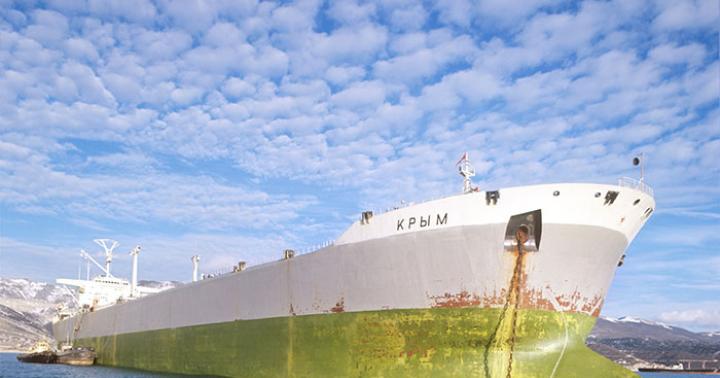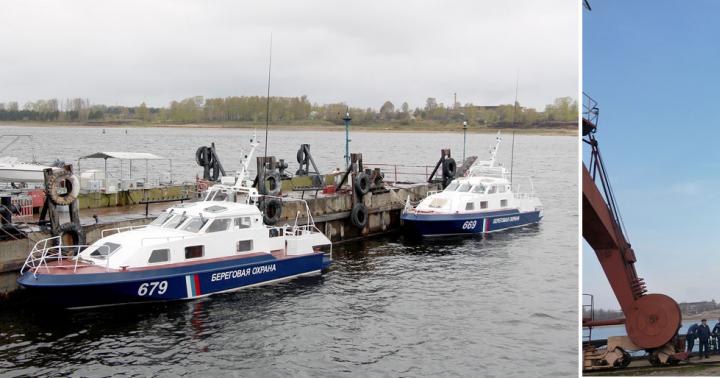In three Lithuanian cities - Vilnius, Kaunas and Alytus - stores of the Fresh market chain have opened, the main investors in which are the creators of the Belarusian retailer Euroopt.
Fresh market supermarket chain in Lithuania is being developed by Ipsun. According to the Center for Registers, Ipsun's sole shareholder is Cyprus-registered Ipsun Holding.
According to the company's website, Ipsun Holding includes 10 companies registered in Lithuania, Poland, Italy, Serbia, Turkey and the Netherlands. With the help of these companies, vegetables, fruits, frozen fish, vegetable (sunflower and olive) oil are supplied to the market of Belarus, Russia and the Baltic countries. "Our suppliers are farmers and large agricultural cooperatives who guarantee that the quality of fruits and vegetables meets all necessary European standards," the company's website says.
In the summer of 2010, Ipsun announced the purchase of the Belarusian company "Belfin" in order to create one of the largest distribution networks that would cover the entire territory of Belarus. At first, the Lithuanian company invested $5 million in organizing the supply of fruits and vegetables to Belarus. These funds are aimed at creating logistics schemes and places for storage of products, the creation of a vehicle fleet, staff training.
According to the Lithuanian business newspaper Verslo zinios, Ipsun is owned by Belarusian businessmen - Sergei Litvin and Vladimir Vasilko, who have been living in Lithuania for about 10 years, and who control the largest retail chain in Belarus, Euroopt, which recently opened its 150th store.
"Fresh market is a personal project of one of the owners of Euroopt. The Lithuanian project has nothing to do with the investments of the Belarusian network," one of the sources familiar with the owners of Euroopt assured TUT.BY.
Saulius Urbonas, the head of Ipsun, told TUT.BY that the company has not yet announced plans and goals for the development of the retail network.
The owners of Euroopt also declined to comment.
It is not known for certain how many Fresh market stores are already open. According to market participants - from 6 to 9.
Supermarkets with an area of 400-1000 sq. m open in the sleeping areas of large Lithuanian cities. The first stores have already appeared in Vilnius, Kaunas and Alytus.
According to Lithuanian retail experts, the new player is positioning itself as an operator of convenience stores where you can always buy fresh food. There is also space on the shelves for non-food essentials.
In addition to Belarus, the owners of Euroopt are creating a chain of stores in Russia under the Eurotorg brand. A Lithuanian manager working in a Belarusian retail chain says that it would be short-sighted to enter Lithuania with the Euroopt or Eurotorg brand. "Eurooptas"? "Opt" - there is no such word in Lithuanian. Fresh market is more of an international and understandable brand. In the future, we can go further with it, without limiting ourselves to Lithuania," he said.
Ramune Askinene from Сolliers believes that Fresh market can have its customers for essential goods, but will not be a competitor for large retail chains, especially in major cities. "The Lithuanian grocery retail market is highly concentrated. More than 70% of the market is occupied by five large retail operators. Therefore, it will be quite difficult for small grocery chains to have a strong position in the Lithuanian market," the expert says. According to her, such players are usually concentrated in small towns and develop the format "at home". "Small stores are more popular if they are specialized. For example, they focus on one specific product (alcohol, confectionery, meat products and others)," concludes Askinene.
Alyaksandr Lukashenka signed Decree No. 297 “On Conducting an Experiment”, which will allow the creation of stores in the Orsha region, despite the existing antimonopoly barrier of 20%.
For individual entrepreneurs and legal entities carrying out retail through the organization of a trading network or large stores, the share of which in the volume retail trade exceeds 20%, it is allowed from August 1, 2018 to December 31, 2022 to acquire and rent additional retail space for retail services in the Orsha district, the press service of the head of state reports.
As TUT.BY recalls, in May, residents of the urban village of Orekhovsk in the Orsha district. In this settlement, the local raipo went bankrupt and closes shops, people considered prices in small private shops to be too high, and the range of goods was small.
Euroopt was ready to come to the village, but could not do it in accordance with the antimonopoly legislation. Other retailers did not take the initiative.
Short story Euroopta
The history of one of largest networks country began in 1993 with a small wholesale trade in food products. In 1997, the first store appeared on Kazintsa Street in Minsk, and 11 years later, the first hypermarket opened on Montazhnikov Street.
As of December 1, 2017, the company operated 472 stores, including 123 stores under the Brusnichka brand.
The network is owned by Eurotorg LLC, Sergey Litvin and Vladimir Vasilko.
How did the 20% limit come about?
As Ezhednevnik noted in 2013, the expansion of Euroopt and Dobronom caused concern for the owners of small regional chains and stores, who achieved the appearance of a draft law on state regulation objects of trade and public catering.
The Ministry of Trade, which initiated it, proposed in the document a norm according to which the state will be able to limit the growth of networks if their share in the regional market exceeds 20%.
Three "Euroorts" in Kopys

One of three Euroopt stores in Kopys
In Lukashenka's homeland - even before the signing of the decree - Euroopt stores began to appear like mushrooms after a summer rain.
The recently opened store can also be seen at the entrance to Alexandria-2, where the residence of the head of state is located. And in neighboring Kopys on one street, in fact, on a segment of one kilometer of the trading network. In addition, another store is being built next to one of them, the developer of which is the Tabak-Invest company, owned by the owner of the Korona hypermarket chain, Pavel Topuzidis.
To the same Topuzidis, who a year ago was the head of the country in the countryside, so that they could compete with the state Belkoopsoyuz.
“The whole country is an experiment! Enough decree!”- some of the participants in the discussion of the news on the talks.by discussion platform decided not to limit themselves to the narrow topic of Euroopt, drawing parallels with the general situation in the country. - “We have 24 years of experiments do not stop”.
“And also as an experiment: on the main TV channel of the country in the main evening newscasts, the game “Luck in addition” will soon be given more time than reports about the battle for the harvest”, - some of the users share sarcastic predictions about the possible development of events.
Among the participants in the discussion there are those who come up with their own proposals:
“There is a state task - to develop the regions. Then the state should have long term plan development of territories, incl. in trade.
You can trade as follows:
1. The state openly announces the region where it is necessary to improve, for example, trade.
2. Interested enterprises that can solve the problem gather.
3. The state announces the working conditions and terms of conditions for enterprises that will develop the region.
4. If there are more than one bidders and the market is narrow, in the case of Euroopt, antitrust laws work.
But if there is only one “Euroopt” out of those who want it, the flag is in their hands, let them master a larger piece of the market.
In addition, if commercial network wants to cross the 40% threshold and get the label “national treasure”, let them issue shares on which you can receive dividends with a percentage higher than in a bank, which only citizens of Belarus can own.
It is possible and will give 100% of the market to the national trading network, which employs specialists at all levels.”
The largest Belarusian retailer Eurotorg announced the preliminary cost of its assets.
Naviny. by studied which companies are included in the holding and who owns it.
Eurotorg Holding Plc has announced its initial public offering (IPO) price range on the London Stock Exchange. According to the retailer, it is $6.95-7.95 per GDR, which will be issued as part of the IPO and represent ownership of the company's common shares.
The placement volume will be 29.1% -32.3% of the company's share capital. Eurotorg expects to raise about $250 million, which will be used to reduce foreign currency debt. The preliminary valuation of the company was 689-789 million dollars.
The value of the company after the investment, respectively, will be about one billion dollars, said Naviny. by a source familiar with the IPO process.
The final share price will be announced tentatively on November 7th. At this time, trading in the company's securities on the London Stock Exchange should begin.
Eurotorg is the largest Belarusian retailer, which occupies about 19% of the market. The main asset of the group of companies is a network of stores under the brands "Evroopt" and "Brusnichka" (food), as well as "Magic" (perfumes, cosmetics, household chemicals, hygiene items).
At the end of September of this year, there were 744 retail outlets in the Eurotorg network throughout the country.

The group of companies is also developing online stores (e-dostavka.by and gipermall.by) and trade household appliances and electronics (Techno Plus stores).
The Eurotorg holding also includes more than a dozen companies that work for retail.
At the enterprises Yuline, Dzerzhinsky Meat Processing Plant, Varminexpo, meat products are produced. The EurooptAgro poultry farm operates in the Molodechno region. In the Minsk region, the Barentsevo enterprise makes fish products. The ElitPartner company produces bakery and confectionery products under the Caring Baker brand.
Transport services in the holding are provided by Eurooptavto, construction by Retorsia-invest, Sotrudnichestvo, CityBalt and other companies.
Service company "PackHouse" provides packaging services for cereals, pasta, frozen fish, vegetables and fruits.

The holding has its own bank - StatusBank. True, it is planned to sell it for 45.2 million rubles to the main shareholders, who use part of the proceeds from the IPO for the purchase.
The ultimate owners of the holding are Vladimir Vasilko(49.75%) and Sergey Litvin(48.75%), who are among the ten most successful and influential businessmen in Belarus. The remaining share is distributed among the General Director of Eurotorg Andrey Zubkov(0.5%) and Chairman of the Board of Directors Alexander Litvin(1%).
Eurotorg company (founder of the Euroopt chain of stores) for last year increased trade turnover to four billion Belarusian rubles, or by 5.5% compared to 2016, told reporters CEO Andrey Zubkov company.
According to the head of the company, in foreign currency, the turnover in 2017 increased to $2.12 billion and increased by 8.6% compared to 2016.
The trade network of the largest retailer in Belarus, consisting of the Euroopt and Brusnichka brands, already has more than 500 stores throughout the country.
Monopolist or lifesaver
According to Zubkov, now in rural outlets prices are higher than the capital average by 30%. Coming in countryside Eurotorg, according to the general director of the trading network, will help reduce the price of products.
The retailer also promises to create new jobs in the regions and increase tax revenues. The company plans to focus in the Year of the Small Motherland on the development of its network in agro-towns.
Earlier, the Ministry of Antimonopoly Regulation and Trade stated that the Eurotorg company violates the legislation of Belarus. In a number of regions of the country, the company's market share exceeded 20%.
This directly contradicts antitrust law countries. However, no sanctions are applied to the company in March: they admit that Belkoopsoyuz also violates this requirement in some regions of the country. At the same time, the market regulator believes that this is due to the fact that commercial structures are not very willing to go to the regions. But when private traders come to rural areas, then the Belkoopsoyuz works better, the department is sure.
Eurobonds and debts
Despite the growing turnover, Evrotorg entered the Eurobond market last year - the company needed investments.
In October, the company issued debut corporate Eurobonds worth $350 million. Moreover, the yield on them amounted to 8.75% per annum. The organizers of the Eurobond issue were J.P. Morgan and Sberbank and Renaissance Capital. US-based Latham & Watkins acted as legal advisor to the issue.
The international agencies S&P and Fitch assigned the sovereign rating "B-" to the issue, which means that the issued securities are highly speculative.
Last year, the company acknowledged the presence of debts to banks in the amount of $624 million. Eurotorg said that it expects to reach the amount of the debt of $580 million as early as the beginning of 2018.
Representatives of Eurotorg claim that, having a turnover of two billion dollars a year, such an amount of debt is quite working for the company.
"The refinancing of loans to both Sberbank of Russia and Russian Alfa-Bank has been successfully completed. Banks have provided our company with comfortable loan repayment schedules until 2022-23," Zubkov summed up.
It is too early to say that the sword of Damocles hangs over the company. Being one of the largest market participants (together with all its subsidiaries, Eurotorg occupies 19% of the Belarusian retail), the company is too big to "fall".
At the same time, we recall that the Rodnaya Storona retail chain, which went bankrupt in 2016, had much smaller debts. In March 2016, when the company's bankruptcy began, information was announced that the amount of accounts payable of NTS (the retailer's operator company) amounted to more than 145 billion non-denominated rubles (about $7.5 million), while the amount of tax debt and fees from the company amounted to 16.29 billion non-denominated rubles, arrears on wages- 192.8 million non-denominated rubles, debts to the Social Security Fund - 150 million non-denominated rubles.
The Ministry of Trade has prepared a rating of the largest retail operators in Belarus by combining information from the Trade Register as of February 1, 2016, Violetta Brezovskaya, head of the department for organizing trade and services of the Ministry of Trade, told TUT.BY.
The Trade Department provided the top ten food and non-food operators. The ranking was based on the overall retail space for one legal entity. So there were some minor issues. Thus, household appliances and electronics stores Korona-Techno and fashion boutiques fell under the wing of the food Korona. Because these are all branches of Tabak-Invest. But the Ministry of Trade did not include the Techno Plus household appliances and electronics stores controlled by Sergei Litvin and Vladimir Vasilko in the “composition” of Euroopt, since they are not registered with Eurotorg.
The Ministry of Trade said that in the future, when such ratings are made public, the calculation method can be improved.
Who are the owners?
The owners of the country's largest retailer Euroopt are Belarusian businessmen Sergey Litvin and Vladimir Vasilko who have been living abroad for a long time.
The chain of stores "Korona" is a branch of the company "Tabak-Invest" Pavel Topuzidis and Viktor Petrovich. Retail business grew up following the tobacco factory. The Ministry of Trade also integrated Korona-Techno household appliances and electronics stores and fashion boutiques into the rating.
Retailer "Almi" belongs to a native of Pinsk Alexandru Zaribko living in Russia and doing the main business there.
The Rublevsky supermarket chain is part of the retail, distribution and logistics RTL Holding, which was created by Sergey Tkachuk, Georgy Rogazinsky and Alexey Loiko.
It is believed that Dobronom is controlled by the owners of Euroopt. But there is no confirmation of this information.
Head of BelWillesden Oleg Baranovsky is considered one of the owners of the Hippo network.
Belmarket stores are under the wing of the Russian investment company A1, created by the well-known Alfa Group of the Russian billionaire Mikhail Fridman.
In the late 1990s, a group of Lithuanian and Belarusian investors created the distribution company Libretik. On the Lithuanian side, its founders were Arunas Pipiras, Marius Macevicius, Alma Jauncemene, from Belarusian - Vadim Avanesov, Maxim Balashov and Oleg Delendik. Later, the retailer "Neighbours" was born.
Mart INN was founded by minority shareholders of the Lithuanian network Maxima Mindaugas and Gintaras Marcinkevičius. On November 2 last year, he became a founding member Dainius Dundulis, which owns Norfa stores in Lithuania.
The network of hypermarkets "Prostor" is being developed by the group of companies "Triple" Yuri Chizh.
The Baranovichi furniture factory "Laguna", which combines several production assets, has become a national leader thanks to its entrepreneurial acumen Alexander Rakitsky and his partners.
After emigration Loran Arinich in connection with a major emergency that resulted in the death of people, "Pinskdrev" came under the wing of the state. The rating does not include franchised stores.
The retailer Ostrov Purity is part of the Romax holding, which unites manufacturers of household chemicals, perfumes and cosmetics, toilet paper and napkins, and an importer of similar foreign products. Family controlled company Viktor Romuk.
Andrey Balabin together with partners, manages the 5 ELEMENT network for the sale of household appliances and electronics.
The general director of the West Ost Union company, which owns the Buslik network, is Sergey Misyachenko.
"OMA", founded by Belarusian businessmen headed by Oleg Glazunov, is now controlled by the Finnish corporation Kesko and its Lithuanian subsidiary Senukai.
The owner of the Mila network is the company Parfyumbytchim, a major distributor of cosmetics and household chemicals.
Kari shoes and accessories chain belongs to Russian businessman Igor Yakovlev, whose fortune Forbes estimates at $ 800 million.
Astomstroy unites construction stores under the Novoselkin and Mile brands. The head is listed Tatyana Koltsova.
The owners of the retailer Elektrosila are Andrey Khomich and Gennady Konoiko.


